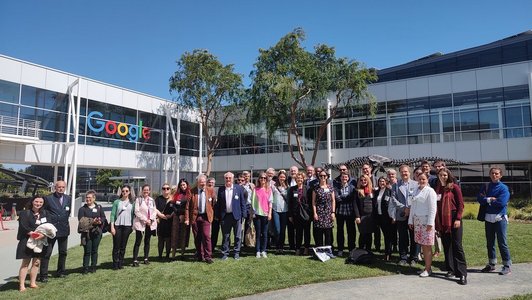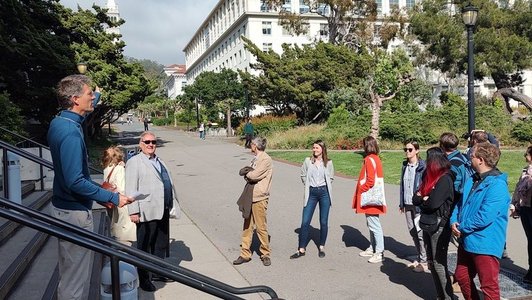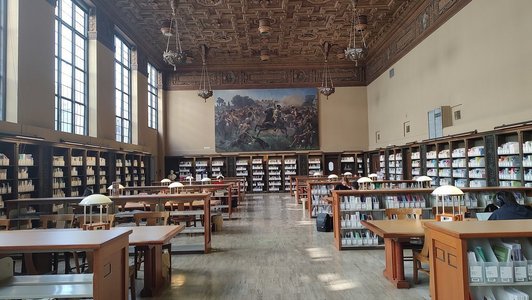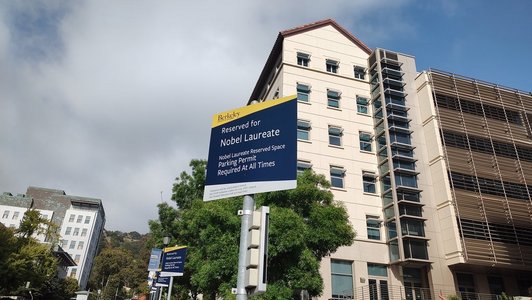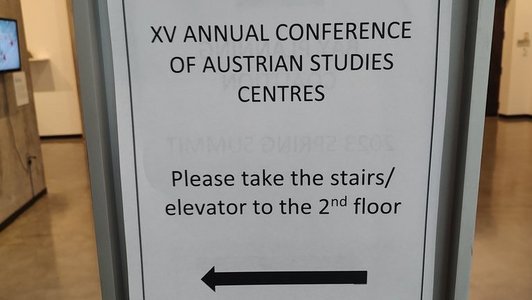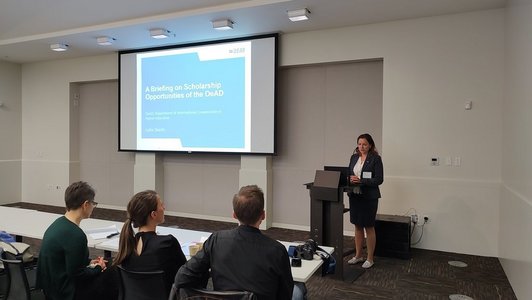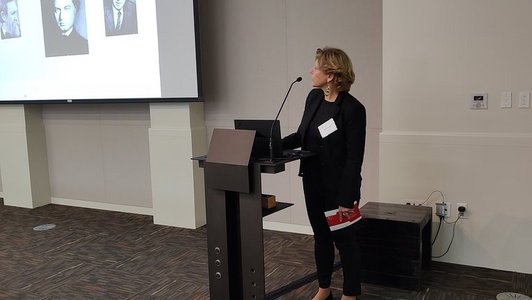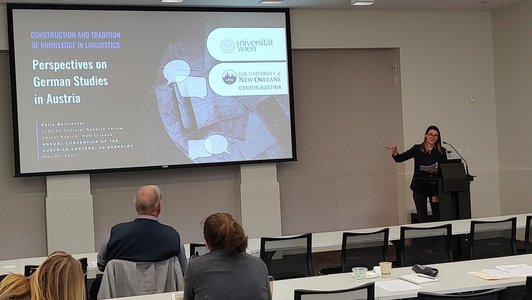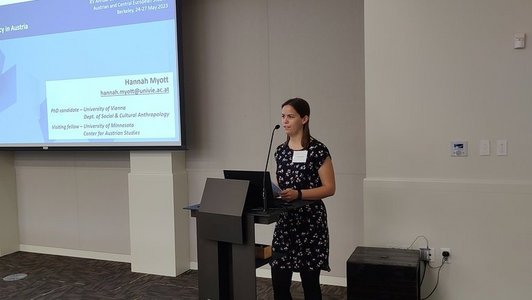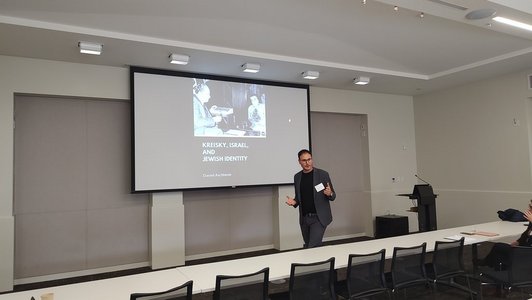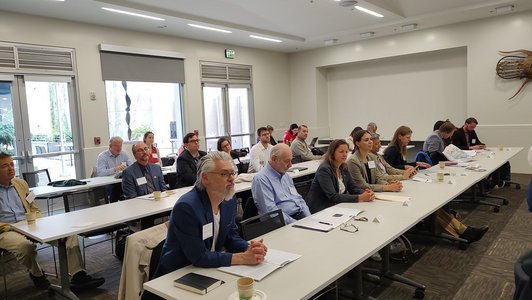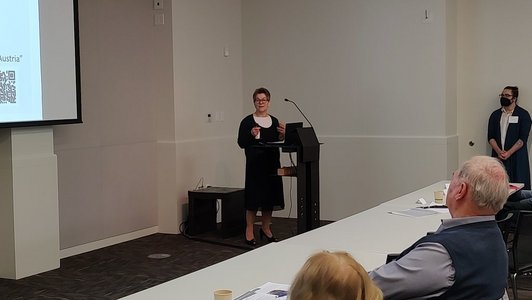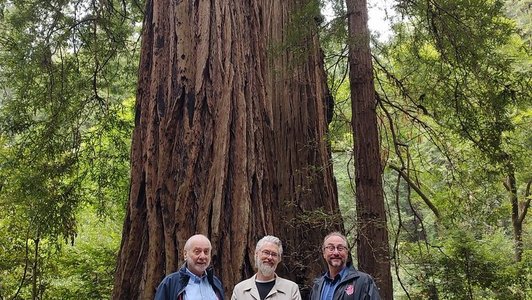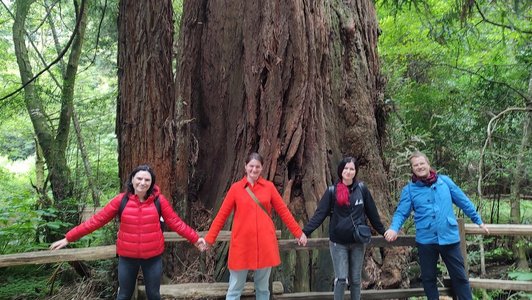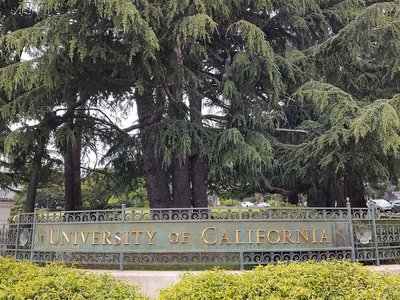

Prof. Jeroen Dewulf, Director of the Austrian Studies Program at the University of California, and his team have arranged an excellent programme for this year’s convention. The academic programme in the mornings was followed by excursions to get to know the host centre, California, and the Bay Area. Prof. Dewulf, as well as Austrian Consul-General Isabella Tomás, Ulrike Csura from the Federal Ministry of Science, Research and Technology (BMBWF) and Lydia Skarits of the OeAD, were opening the conference.
Each morning, the Directors of the centres presenting that day gave an overview of their activities in the past year, spanning from exciting new projects to attract new students, to the organization of film days, and newly published books. Then, early-career researchers presented their papers on a wide variety of themes. Topics spanned from analysing the “Wiener Salonblatt”, a social network of the 19th century, to Austrian-Israeli relations, the instrumentalizing of religious traditions of the German minority in interwar Hungary, the “cleaning” of symbols of said minorities in Czechia, to Causal Explanation in Molecular biology or George I. Rakoczi and St. Severinus. In terms of literary studies, conference participants learned more about the devil’s pact in German Romanticism, and Ingeborg Bachmann’s Malina. Another paper reflected the different approaches and ideologies applied to German Studies at Austrian universities throughout the Second Republic of Austria, while another was examining “integration” policy in Austria. Furthermore, social inequality and regional disparities in socialist Yugoslavia, different relationships to the extreme right of “Old Nazis” in Postwar Austria and West Germany as well as cultural ownership of Kafka’s heritage were also discussed. Surprisingly, there was also a focus on Kreisky with two presentations about him. One was examining Kreisky’s foreign policy, while Daniel Aschheim presented his book “Kreisky, Israel, and Jewish Identity”, published by the University of New Orleans Press. Most of the participants presented their ongoing projects, which resulted in interesting and lively discussions. As always, the conference papers will be published in the series “Europa Orientalis” by the Austrian and Central European Center Vienna.
Afternoon excursions started with a tour of the University of California’s campus. One of the highlights was Room 307 of Gilman Hall, where Plutonium was first identified. As many were astonished to find out, Nobel laureates of the University are receiving a free lifetime permit to park in special parking spots on campus – a strong incentive in a city plagued by a parking shortage. In the following days, the group also visited the spectacular Muir Woods and Google campus, as well as San Francisco’s Chinatown and downtown. Getting to know another university campus nearby, the group also enjoyed a tour through Stanford University campus led by Peter Fredericks, Em. Honorary Consul of Austria. The cultural exchange between the participants from different nations sparked lively discussions on the trips as well. Students and professors alike had lots of fun meeting people with the same background of researching Austria or East Central Europe. Meaningful connections were certainly made, with many plans for future cooperation.
About the Centres for Austrian Studies:
The first Centre for Austrian Studies was founded in the 1970s by the Austrian Federal Ministry of Science at the University of Minnesota. There are now nine Centres with different focuses in Vienna, Olomouc, Budapest, Leiden, New Orleans, Berkeley, Minnesota, Alberta/Edmonton and Jerusalem, all of which have the academic study of Austria and East Central Europe as their goal. Annual meetings always take place alternately at one of the locations of the Centres. The next meeting in 2024 is planned for Budapest.

